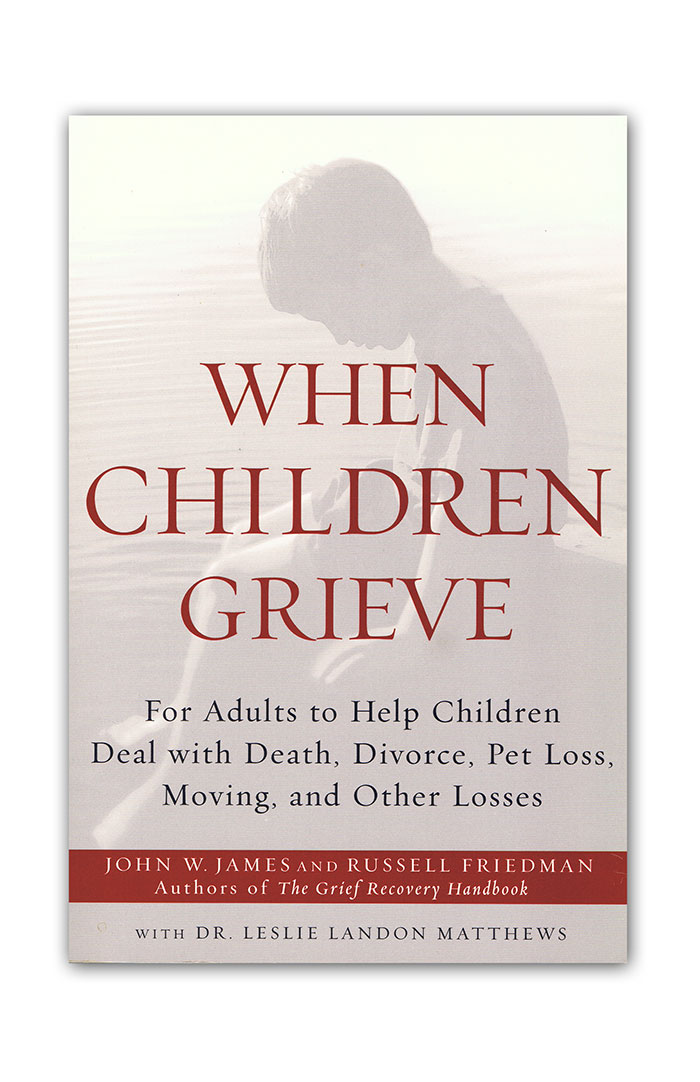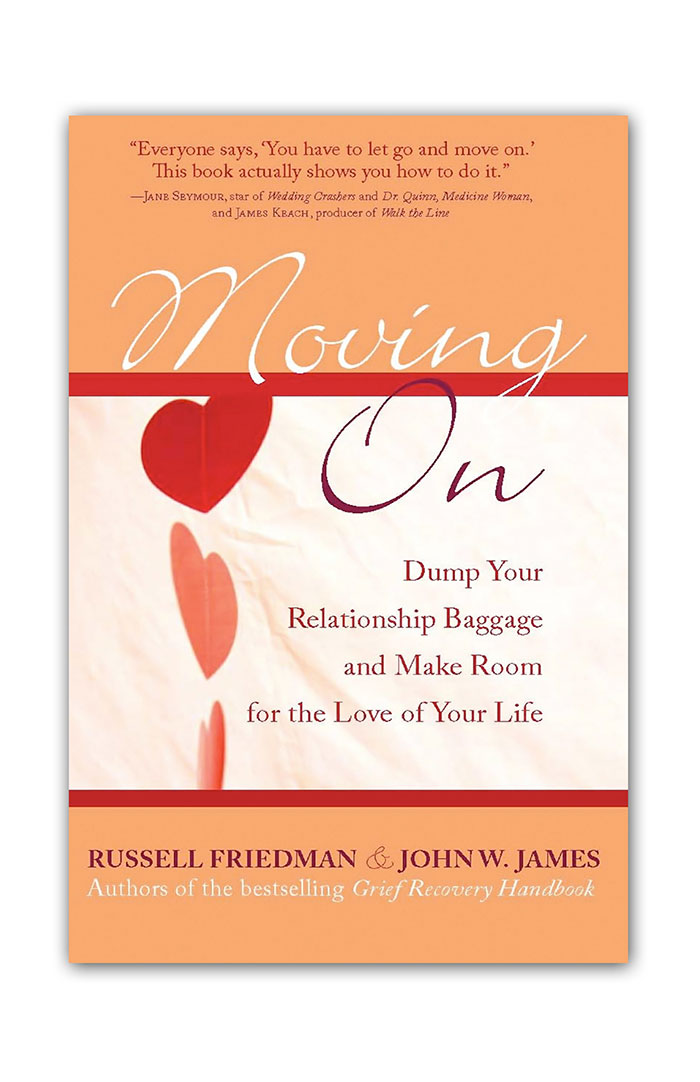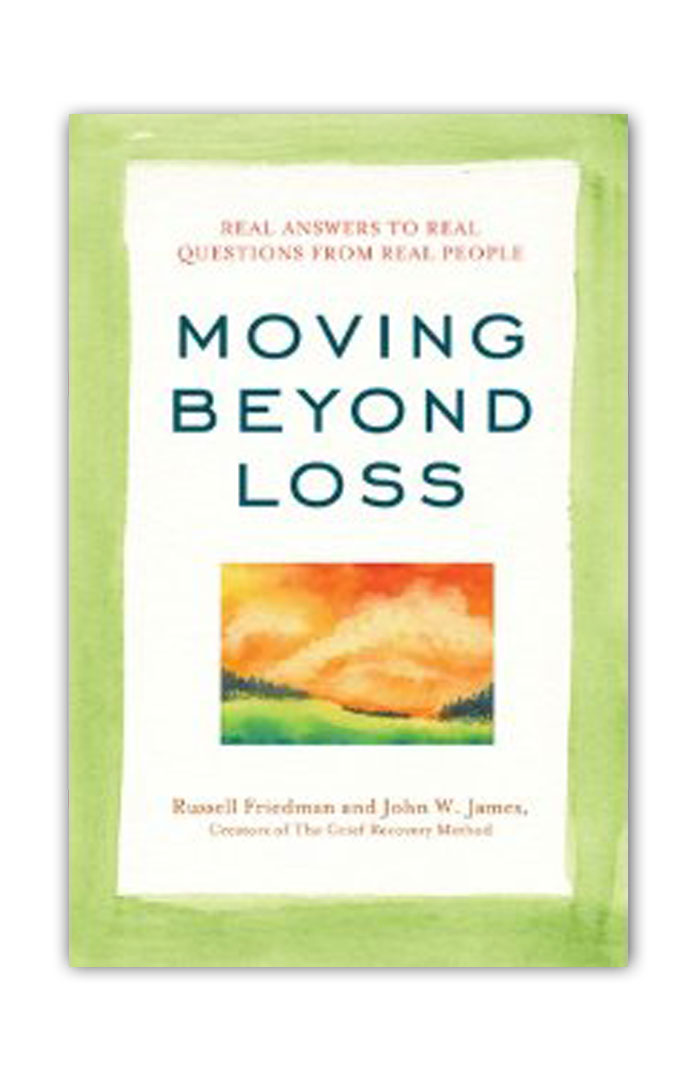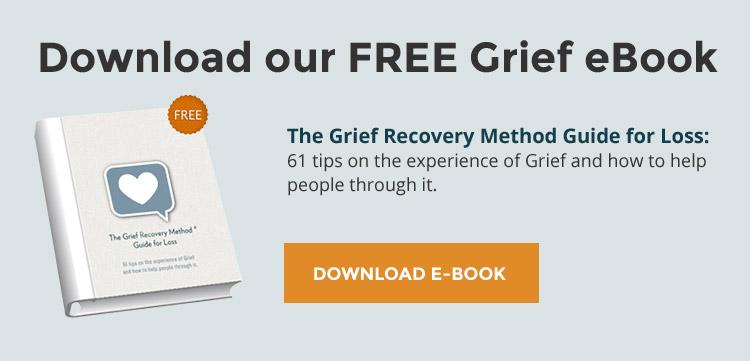
A search of books on Bereavement and Loss will show you that thousands of grief books have been written. The majority of these books are either the stories of different people’s struggles with their losses, or books that offer intellectual reasons to deal with this most painful of emotional issues. Neither of these offers any real assistance to new grievers struggling with their own pain. Since grief is indeed an emotion, logical and intellectual solutions do little more than encourage a griever to bury their pain and not talk about it.
Most grievers are desperate for answers. They want to be able to enjoy their fond memories without regrets. They want to once again be able to find happiness and not constantly relive those moments of emotional pain. They don’t need to hear another person suggest they “get over it,” or give them another logical reason why they should feel better. The good news is that help is available!
These are the 5 best books ever written on grief recovery:

This book, written by John W. James and Russell Friedman, is now in its 4th edition with the Harper Collins publishing family. Prior to their involvement, the book was first published directly by The Grief Recovery Institute. Since its first printing, over 30 thirty years ago, this book has been translated into 23 different languages and is in programs on every continent, save Antarctica, and in a wide variety of different cultures. It’s also available in audio book format.
What has made this book such a powerful tool in Grief Recovery is that it deals with grief as an emotion. It offers a road map to dealing with what is emotionally incomplete in any relationship, whether it is one that was loving or otherwise. Rather than just telling grievers the actions they need to take, the authors give examples on how to accomplish this, based on losses they themselves have experienced. In a very real sense, the authors walk side by side with each griever through this process.
Another positive aspect of this book is that it recognizes and discusses that grief is not just the result of a death. It works well with the many issues that are often referred to as “disenfranchised grief,” or grief that others fail to recognize as emotionally impactful. Divorce, pet loss, moving and personal health issues are but a very few of the examples of these other, often overwhelming, loss events. In truth, every change from normal everyday behavior patterns can result in a grieving experience.
“The Grief Recovery Handbook” begins by taking the bereaved back to what they first learned about how to deal with loss, and how most of these things addressed their heads, rather than their hearts. It covers how grief can impact us on a physical level, when we fail to deal with that emotional pain. It then moves into the actions that are needed for recovery.
Each new edition has included additional support material, but the focus has always remained the same: the emotional pain of grief is the result of undelivered communications. These communications normally relate to things that the griever wishes had been different, better or more in that relationship. It then offers a step-by-step approach regarding how to identify each of these issues and the necessary actions for addressing them to best advantage. The ultimate goal is for that individual to once again be able to enjoy their fond memories, without the painful reminders of what was left unfinished.
UPDATE: August 2019 - there is now an Audible version of the Grief Recovery Handbook, 20th Anniversary Edition Revised. To obtain a copy of this, here is the link to this version on Audible.

This isn’t a book to be given to children to help them recover. Instead, it’s designed to help parents and care givers better assist children in dealing with any type of loss. If offers these adults the tools they need to better communicate with children about this often ignored subject.
Dr. Leslie Landon Matthews, a psychologist who focuses on children and grief, joined James and Friedman in authoring this book. She was greatly impacted by the death of her father, actor Michael Landon. Dr. Matthews has found success in using the Grief Recovery Method in her own life, which further enhanced her contribution in creating this material.
Rather than just speaking about children’s needs on a general level, it addresses working with them based on their level of development. How a toddler responds to loss is far different than an adolescent or teenager. Each section of the book offers guidelines for the necessary actions for each of these different groups of children.
It reminds parents that grievers of any age need to be allowed to express their emotional pain without analysis, criticism or judgment. It offers them tools on how to begin these discussions, since most children, when asked “what is wrong,” will frequently reply, “nothing,” for fear of the response they will receive. Just as with the previously mentioned book, if focuses on creating a safe and loving environment for recovery.
The principals it offers, regarding recovery actions, closely parallel those in “The Grief Recovery Handbook.” In truth, it’s often the case that in helping their children deal with their grieving events, parents also discover that they need to take recovery action for themselves.
Like the “Grief Recovery Handbook,” “When Children Grieve” is also available as an audio book, for those with visual or reading disabilities.

This book is specifically designed for those who are dealing with divorce or the breakup of a once loving relationship. As it states on the cover, it’s designed to help people “Dump their emotional baggage and make room for the love of your life!”
What many people don’t realize is that the unresolved emotional pain of one failed relationship is frequently carried over into the next. If that griever doesn’t take action to deal with that pain, they can be less open in the next relationship. Often they will unwittingly hear the voice of their previous partner in what their new partner says. This is one of the reasons that some people have a history of relationship failures.
“Moving On” offers this group of grievers the specific tools necessary to effectively mourn the loss of that relationship and complete the unfinished business regarding their unmet hopes, dreams and expectations. It puts them in a better position to face and embrace a future that is different from what they had planned. It also opens the possibility to ultimately move into a successful new relationship, if that’s their wish.
As with any loss, the tools for recovery are the same, but the application is unique to that particular individual’s situation. That’s one of the reasons that the Grief Recovery Method has universal application.

“The Grief Recovery Handbook for Pet Loss”
Those people who have never emotionally bonded with a pet often have trouble understanding the degree of pain such a loss can inflict on a pet owner. This is another example of disenfranchised grief. The most common suggestion that’s offered is that they immediately “replace the loss” with a new pet. When that pet owner hasn’t taken recovery action for their previous loss, the next relationship is often far less fulfilling.
As with “Moving On,” this book utilizes the actions of the Greif Recovery Method with a specific loss focus. Cole James joined John James and Russell Friedman in authoring this book, bringing yet another perspective to the table. As with the previous books, this isn’t just a book to read, but one that offers a solid action plan for saying “goodbye” to what was unfinished in the relationship.
I was never given that opportunity to say ‘goodbye” when my best friend, my first dog, died. Sadly, I thought of her replacement as just “the dog.” She was never the special friend and companion I previously had. As with each of the other books discussed, this book provides the griever with caring companionship on their journey beyond the emotional pain of loss.

Unlike each of the other books, this isn’t a specific guide to taking recovery action. Instead it’s a collection to the most common questions asked by grievers, accompanied by solid answers. These are not questions that we have imagined. These are real questions that real grievers have asked to help them move through their own emotional pain related to a wide variety of losses.
Never once in this book do Friedman and James suggest that the grievers just get over their pain, or discount its impact. They recognize that each griever is feeling their pain at 100% of their ability and are looking for direction on how to move through and beyond its overwhelming power in their lives.
The book is organized in chapters that each deal with somewhat related questions. This makes it far easier for readers to find the answers they are seeking. Again, it deals with grief as an emotion and avoids speaking to the head, rather than the heart. (Grievers suffer from broken hearts, not broken heads!) The heartfelt answers offered are based on the more than thirty year history of the Institute in working with grievers face to face and helping them on each of their individual loss issues.
Concluding Comments
The Grief Recovery Institute has never looked at helping grievers as just a job, but rather as an opportunity to make a real difference for those suffering the intense pain of emotional loss. We have never considered Grief Recovery as a form of “grief therapy,” although the principals we teach can be very therapeutic.
For anyone to tell a griever that “they know how they feel” is impossible. Each loss is unique to that individual who lives with the experience. While someone might remember how they felt in a similar situation, there is never a way to truly understand the full emotional impact of a loss on another.
Over the years, I have met with people who have told me that their grief was different from everyone else’s. They were often surprised that I agreed with them. Since each griever is unique and each loss is unique, everyone’s grief is likewise unique. That is what is so powerful about the Grief Recovery Method; not matter the situation, it adapts to each individual’s needs. It’s even effective with those who identify as suffering from complicated grief.
Each of these books approaches the subject with this understanding in offering direction for taking recovery action. The steps and counsel they offer have worked well for millions of people around the world. Most important of all, they can work for you!
For more information, or to order your copy of any of these books, visit out webpage The Grief Recovery Method Books

























Add new comment